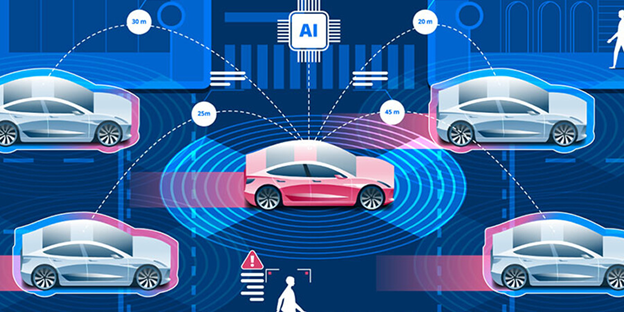- Home
- Navigating the Ethical Implications of Autonomous Vehicles on Society
Navigating the Ethical Implications of Autonomous Vehicles on Society
Autonomous vehicles, also known as self-driving cars, are a rapidly developing technology that promises to revolutionize travel. These vehicles use a combination of sensors, cameras, and machine-learning algorithms to navigate the road without the need for human input.
While this technology offers many potential benefits, such as increased safety and reduced congestion, it raises significant ethical questions and concerns about its impact on society. This article will explore some of these ethical considerations and their implications.
- Safety: One of the most significant potential benefits of autonomous vehicles is increased safety. These vehicles can potentially reduce the number of accidents caused by human error, which is currently the leading cause of traffic fatalities. However, the technology still needs to be perfect, and accidents involving autonomous vehicles have occurred. Ethical considerations arise regarding the balance between the potential for increased safety and the risk of harm.
- Liability: As the technology of autonomous vehicles develops, questions arise about who is responsible in the event of an accident. Is it the vehicle manufacturer, the software developer, or the individual owner? It is essential to establish clear liability guidelines to ensure that those responsible are held accountable.
- Job Losses: The widespread adoption of autonomous vehicles could lead to significant job losses in the transportation industry. This potential impact on employment raises ethical questions about the responsibility of companies and governments to provide support and retraining for those who may lose their jobs.
- Equity: There are concerns that autonomous vehicles could exacerbate existing social and economic inequalities. For example, those who can afford to purchase or access autonomous vehicles may have a significant advantage over those who cannot, leading to further divisions between the rich and poor.
- Privacy: Autonomous vehicles gather vast amounts of data about their surroundings and passengers. There are concerns about the privacy implications of this data collection and the potential for misuse or unauthorized access.
- Regulation: As with any new technology, regulation is required to ensure that autonomous vehicles are safe and reliable. Ethical considerations arise regarding the balance between regulation that is too restrictive and stifling innovation and regulation that is too lenient, allowing for potentially dangerous systems to be deployed.
- Ethics of Decision Making: Autonomous vehicles must make complex decisions based on data, algorithms, and rules. These decisions can have significant ethical implications, such as the choice between saving the life of a passenger or a pedestrian in the event of an unavoidable accident.
In conclusion, the ethics of autonomous vehicles and their impact on society are complex and multifaceted. While the technology offers many potential benefits, such as increased safety and reduced congestion, it raises significant ethical questions about its impact on employment, privacy, and equity.
The development and deployment of autonomous vehicles require a thorough consideration of these ethical concerns and a collaborative effort between industry, government, and society to ensure that the benefits of the technology are realized while minimizing any potential negative impacts.



.png)

What other's say about : How ThePhone thriller..